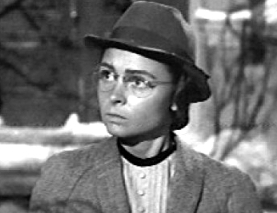Review: 'Netherland' by Joseph O'Neill
Over the years I've become an obsessive Anglophile, following British football and literature with the kind of unvarnished joy that can only come from being completely ill-informed on a subject. I don't know enough about either one to become jaded, though my adoption of Tottenham Hotspur as favorite team is beginning to change that.
My love of British books is exercised by following each year's Man Booker Prize, the most prestigious literary award for fiction in the U.K. The prize goes through a three-stage process with considerable hype in the British press. The Booker begins when a longlist of around 12-20 books is announced in late July. The list is winnowed down to a shortlist of around six titles in early September, then the winner is announced a month later.
 Every year, I pick up a few novels on the Booker lists before the prize is awarded, hoping to read the winner beforehand and lord this over friends and family, in spite of the fact that I don't know a single person who would be excited by this accomplishment. This year my first finished Booker nominee is the longlisted Netherland, a powerfully written work by the Irish writer Joseph O'Neill that's being called the latest Great American Novel. The book's an introspective, slow-paced and mournful story of New York City that has the audacity to evoke both 9/11 and F. Scott Fitzgerald's The Great Gatsby.
Every year, I pick up a few novels on the Booker lists before the prize is awarded, hoping to read the winner beforehand and lord this over friends and family, in spite of the fact that I don't know a single person who would be excited by this accomplishment. This year my first finished Booker nominee is the longlisted Netherland, a powerfully written work by the Irish writer Joseph O'Neill that's being called the latest Great American Novel. The book's an introspective, slow-paced and mournful story of New York City that has the audacity to evoke both 9/11 and F. Scott Fitzgerald's The Great Gatsby.
The novel concerns Dutch-born financial analyst Hans van den Broek, an affluent denizen of New York's Chelsea Hotel who loses the joy and purpose in his life when his wife Rachel flees both the city and their marriage after the trauma of 9/11, taking their infant son with her. Hans tells his own story, but devotes considerable energy to being the captivated narrator of another man's story -- a fast-talking and grandiose Trinidadian immigrant named Chuck Ramkissoon, a friend whose larger-than-life plan for achieving success and respectability in America is as doomed as that of Jay Gatsby.
This is not a spoiler. Readers learn early on that Ramkissoon has been found tied up and murdered in the Gowanus Canal.
The novel spends a great deal of time on cricket, the only spark in Hans' dark existence after his wife leaves. Although I know nothing of the sport that I didn't pick up from this book, it doesn't detract from the impact of O'Neill's long and lyrical passages about the role of the game in Hans' life, its role in the lives of first-generation American immigrants like Ramkissoon, and the invisibility of the game to most citizens of the United States, where cricket serves as a stand-in for other exotic foreign subjects we might want to know better after 9/11 shrank the planet. I was amused by the notion, held deeply by the cricket players in the book, that the U.S. will not become truly civilized until it embraces cricket. "There's a limit to what Americans understand," one of Ramkissoon's potential investors tells Hans. "That limit is cricket." Ramkissoon's big dream is to build a cricket pitch on an abandoned airfield in Brooklyn, believing it will attract the world's best teams, worldwide TV audiences and the long-withheld affection of Americans.
O'Neill packs the novel's 256 pages with observations about New Yorkers that are worth repeating. Two of my favorites occur in rapid succession when the heartsick and unsociable Hans finally lures a woman home, providing a welcome respite from his morose internal dialogue:
... while I changed, Danielle wandered around my apartment, as was her privilege: people in New York are authorized by convention to snoop around and mentally measure and pass comment on any real estate they're invited to step into. ...
Like an old door, every man past a certain age comes with historical warps and creaks of one kind or another, and a woman who wishes to put him to serious further use must expect to do a certain amount of sanding and planing.
In one conversation Ramkissoon uses a bit of Trinidadian slang that I really like. He derides one of his more obnoxious business associates as a pawmewan, a poor-me complainer who is always feeling sorry for himself. Hans is a huge pawmewan whose personal suffering occupies a majority of the book, but O'Neill describes the grieving and loss associated with failed marriage and parenthood with great skill.
Blogger Janice Harayda believes that Hans is an unreliable narrator, a prospect that adds considerable intrigue to Ramkissoon's murder. I don't know if I buy that, because O'Neill doggedly refuses to make Hans' life dramatic, devoting several pages at one point to an intolerably long day he wastes at the Department of Motor Vehicles.
Although Netherland is by no stretch a thriller, O'Neill manages in Chuck Ramkissoon to create an unforgettable American character -- like Jay Gatsby another dreamer dead in the water.
Tropical Storm Fay Decides to Stay
![]() We're hunkered down for Tropical Storm Fay, which has stalled over Daytona Beach and is sending massive amounts of rain to the Jacksonville area. The weather buoy on the St. Augustine Beach pier reported wind gusts as high as 49 mph in the middle of the night.
We're hunkered down for Tropical Storm Fay, which has stalled over Daytona Beach and is sending massive amounts of rain to the Jacksonville area. The weather buoy on the St. Augustine Beach pier reported wind gusts as high as 49 mph in the middle of the night.
I pride myself on being the first person to evacuate Florida under threat of hurricane, but Fay wasn't predicted to become a category 1 hurricane until there was no time to flee, so we rode it out. The storm has stayed too close to shore to reach open water and strengthen, but it refuses to leave so we're getting from 5 to 15 inches of rain. Dozens of egrets showed up this morning to dine on frogs in the saturated field behind my house.
They're not the only ones who saw a dining opportunity. One of the perks of staying for a storm is eating at local restaurants that are impossible to get into otherwise. Last night we ate at O'Steens, a local seafood restaurant that's famous for its food and the wait time required to get a table. After eating way too much of the best fried shrimp on the planet, I waddled over to the beach and joined hundreds of people wandering around and watching crazy people surf.
Take Heart, Unmarried Women 35 and Older
The radio show The Romance of Helen Trent, which aired from 1933 to 1960, began each of its 7,222 episodes by reassuring women over 34 that they weren't too old to attract a man:
And now, The Romance of Helen Trent, the real-life drama of Helen Trent, who, when life mocks her, breaks her hopes, dashes her against the rocks of despair, fights back bravely, successfully, to prove what so many women long to prove, that because a woman is 35 or more, romance in life need not be over, that romance can begin at 35.
 The premise reminds me of It's a Wonderful Life, in which George Bailey's absence from wife Mary's life turns her into an unmarried and independent career woman in a smart hat. I watched that film dozens of times as a child without envisioning a scenario in which she might have been happy with that fate.
The premise reminds me of It's a Wonderful Life, in which George Bailey's absence from wife Mary's life turns her into an unmarried and independent career woman in a smart hat. I watched that film dozens of times as a child without envisioning a scenario in which she might have been happy with that fate.
After attending a public screening of the film, Elyse Kroll wrote in Information Outlook that the library scene hasn't aged well:
While it is decidedly a period piece at this point, it has managed to remain relevant, and in many ways still feels fresh. That is, with one memorable exception -- the infamous library scene. ...
You probably remember it: Clarence the angel offers suicidally dejected George Bailey a glimpse of how much worse off the world would be had he never been born, culminating with the horrifying revelation that if not for George, Mary Hatch would have wound up not just an old maid, but -- horror of horrors -- a librarian to boot! This moment triggered a huge laugh from the audience, a laugh that was probably not intended when the film was made in 1946.
Media Ignored McCain's Faith Forum Fumble
After watching the presidential forum at Rick Warren's Saddleback church on Saturday, I was amazed at how complimentary the media has been of John McCain's performance. I gave up on his portion of the event after 30 minutes, tired of watching McCain fumble through his stump speech talking points instead of answering the questions.
 The media was so kind to McCain after the forum that they missed (or ignored) the biggest jaw-dropper of the night -- his answer to the question of which Supreme Court justices he would not have nominated.
The media was so kind to McCain after the forum that they missed (or ignored) the biggest jaw-dropper of the night -- his answer to the question of which Supreme Court justices he would not have nominated.
Warren: ... which existing Supreme Court justices would you not have nominated?
McCain: With all due respect, Justice Ginsburg, Justice Breyer, Justice Souter and Justice Stevens.
Warren: Why? Tell me why?
McCain: Well, I think that the president of the United States has incredible responsibility in nominating people to the United States Supreme Court. They are lifetime positions as well as the federal bench. There will be two maybe three vacancies. This nomination should be based on the criteria of proven record of strictly adhering to the Constitution of the United States and not legislating from the bench. Some of the worst damage has been done by legislating from the bench.
Warren did a better job asking questions than professional journalists have done in most of this year's debates, but that answer was crying out for a Tim Russert-style follow-up.
As Taegan Goddard points out today on Political Wire, McCain voted to confirm Breyer, Ginsburg and Souter. (Stevens was nominated before McCain was elected to the Senate back in 1946.)
McCain's answer may be the most glaring flip-flop of the general election campaign. He voted yes on most of the Supreme Court's liberal wing, yet he just said -- in a purpose-driven house of God, no less -- he wouldn't have nominated them.
Dear Immediate Supervisor: Stop Being a Whore
There's some hilariously bad advice in today's Annie's Mailbox, the newspaper advice column published by Kathy Mitchell and Marcy Sugar, the longtime editors of Ann Landers.
A woman's female boss appears to be having an affair with an unmarried male boss in another department. She's seen them together at a restaurant, art gallery and grocery store, and they're the subject of snide workplace gossip. She asks the Annies whether to say anything.
Their advice:
Your supervisor and her friend may run the risk of being fired if their relationship goes further. You have no evidence of misbehavior, but she should be made aware of the rumors. Tell her you value the friendship and thought she should know what's being said, and that the relationship is creating a difficult work environment. Beyond that, please stay out of it.
Hey, boss. Got a second? Everybody in the office thinks you and Stan from accounting are making the beast with two backs. I, myself, have spotted you two outside of work several times. You're the subject of considerable ridicule and the situation makes the rest of us uncomfortable. Please stop being a whore.
And about that raise?
Adding ReCaptcha to a Weblog
I've added a ReCaptcha component to the comment form on Workbench to deter spammers. The ReCaptcha system presents two hard-to-read words that must be typed in successfully for a comment to be saved. Here's what the component looks like:

I tried as long as possible to avoid using captchas, but the amount of spam hitting this blog continues to grow, particularly from foreign IP addresses. Workbench has received 16,000 comments and more than 260,000 spam since it began accepting comments in 2002.
The ReCaptcha project serves a useful purpose, digitizing old books and newspaper articles by getting millions of people to identify words that OCR software couldn't recognize. Adding the component took around 10 minutes: I signed up for a ReCaptcha account, stored the PHP library recaptchalib.php on my web server, and added less than 20 lines of PHP to the page that takes comments.
The addition of captchas serves as official notice that my comment flak technique failed to deter spammers. I'm retiring that code.
Randy Charles Morin Becomes RSS Advisory Board Chair
When I became chairman of the RSS Advisory Board two years ago, one of my goals was to resist the temptation to bogart the job. I wanted to find somebody who could keep the group going as chairman and bring a fresh perspective to the tasks of maintaining the RSS Specification and helping RSS developers and publishers adopt the format.
It became obvious pretty quickly that Randy Charles Morin would do a great job leading the group. With the approval of the board, he's taking over as chairman while I continue as a member.
A member of the board since 2006, Morin is an RSS software developer who created the enormously popular RSS-to-email service SendMeRSS, which had 50,000 users when it was sold to NBC Universal in 2007. Morin began the site -- originally called R-Mail -- as a personal project, turning it into a business when it grew by 15,000 users over a 90-day period.
A member of the RSS community who's been evangelizing the format for years, Morin publishes the RSS Blog, a how-to site for RSS publishers and developers that has more than 6,800 subscribers to its feed. While on the board, Morin led the development of the RSS Best Practices Profile, a set of recommendations that make it easier for feed publishers and programmers to implement RSS 2.0.
One of Morin's first goals as chairman is to pursue the adoption of Portable RSS, a proposal from 2003 to make it possible to embed RSS in other XML dialects.

